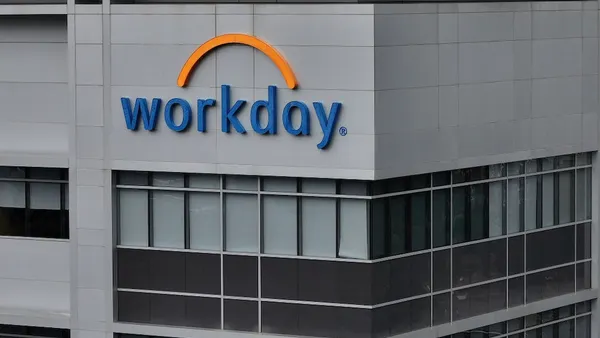A new year, a new slew of content focused on how HR professionals can push forward and stay on top of the latest trends – to the point where it can feel like every HR pro on the planet has some sort of prediction or other. On our site alone, we’ve had at least 12 pieces (both briefs and feature-length) dedicated to the trends of the future, and that’s probably missing a couple.
It can be a little overwhelming for any discerning reader. So we took the time to compile the top 6 2016 trends pieces we’ve written so far into one, easily accessible place – partly as a refresher and partly so readers have a touchstone of where to start.
There may be more trend stories yet to come, and we’ll keep track of the ones that matter most. But as of publication, here are the HR Dive trend pieces you should keep top of mind this season.
1. Top 10 HR tech trends to watch for in 2016
From Software as a Service to the cloud, and mobile to employee engagement software, HR managers are in up to their ears in HR tech offerings, especially as the technology continues to hit new strides. In our piece from October, we gathered the opinions of four HR tech experts to nail down the 10 most important upcoming trends in tech.
Some important notes: HR tech strategies are changing thanks to the boom in HR application vendors and the growth of SaaS and cloud. Also, HR tech is focusing more now on integration between tax, finance, legal and HR rather than keeping each section in separate silos. If you can't get enough tech predictions, there's also this brief on Bersin and his view on the rise of the app.
2. The top learning trends for 2016 and beyond
"It's a golden age for learning," one expert told HR Dive. Video and gamification are rising in the field, but the classroom is hanging on to relevance as well, making learning and professional development an increasingly complex and necessary field.
Diversity and millennials as well as the consumerization of learning all play a role in future learning trends, especially as the UI of learning modules continues to improve.
3. Six trends for 2016 that HR executives should watch
This story focuses more broadly on what is happening in the HR space, largely from the view of Jayson Saba, a human capital management exec who has "done it all." The changing nature of performance reviews, compliance issues (particularly with the Affordable Care Act), managing remote workers and helping employees engage more directly with their teams and managers rather than the company itself all make this list.
4. 2016 recruitment predictions: Diversity, improved metrics and more
Many of the predictions in this piece come from Futurestep, the recruitment process outsourcing (RPO) division of Korn Ferry. With a job market primed for the job seeker thanks to an aging workforce and an increased need in specialized skills, candidates are more "in the driver's seat" than ever. Hiring is even seen as a way to fight competition.
Recruiting technology, the importance of diversity and smart data sourcing are also considered in this piece.
5. The 'scariest' employer legal challenges in 2016
Based on data from XpertHR, an online resource for legal compliance, this piece covers the top 10 legal challenges employers will face in 2016, in order of most relevant. For example, the top most issue, the legalization of same-sex marriage nationwide, is likely to affect the largest amount of employers throughout the United States as they will need to adjust benefits programs to ensure they are legally compliant with the new law of the land.
Other legal challenges include reasonable accommodations in the workplace, paid sick leave, the continued debate over independent contractors and the increased demand for telecommuting and flexible work places.
6. The 2016 benefits trends employers need to know
Benefits are always a big deal in the HR space, but especially so now thanks to the Affordable Care Act and the recent delay to the dreaded Cadillac Tax. With sweeping changes being made to benefits programs throughout companies of all sizes, some are even considering a future where healthcare benefits are used in a way similar to how we use other forms of insurance today, particularly auto insurance. Not all agree, but it is still a fascinating analogy to think about.
Like in other parts of the HR world, tech is a big focus here, particularly consumer experience and tool flexibility.












